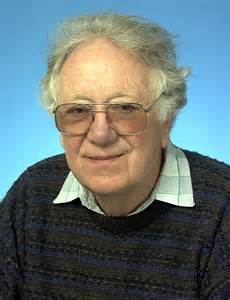- Membership
- Perks and Discounts
- Things To Do
- Resources
- News
- About
- Shop
Related Content
Former School of Government Dean Receives Holshouser Award
March 19, 2024
This article was updated March 20, 2024. Mike Smith ’78 (JD), dean emeritus of the...
Read MoreThe Business of Caring
March 8, 2024
The American economy is confusing. Growth is up, but consumer confidence is down. Inflation is...
Read MoreSILS Names New Dean
Feb. 8, 2024
UNC has hired Jeffrey Bardzell of Pennsylvania State University as its new dean of the...
Read More-
2024
-
2023
-
2022
-
2021
-
2020
-
2019
-
2018
-
2017
-
2016
-
2015
-
2014
-
2013
-
2012
-
2011
-
2010
-
2009
-
2008
-
2007
-
2006
-
2005
-
2004
- Academics and Athletics
- Admissions
- Alumni Profiles
- Alumni Recognition
- Around Town
- Arts
- Books
- Campus Profile
- Campus Safety
- Carolina Alumni Awards
- Carolina Alumni Leadership
- Carolina Alumni Programs and Outreach
- Carolina Alumni Reunions
- Carolina Alumni Review
- Celebrations
- Championships
- College and Costs
- Commencement
- Coronavirus
- Discovery
- Extracurricular
- Faculty
- Faculty Awards
- For the People
- Go Heels
- Greek Life
- Hark the Sounds
- Higher Education
- Homecoming
- In Class
- In Memoriam
- Innovation and Technology
- Issues
- Object Lesson
- On View
- Our Treescape
- Philanthropy
- Podcast
- Public Service
- Race and Reckoning
- Research
- Sexual Assault
- Silent Sam
- Sports
- Structures
- Student Achievement
- Students
- Timelines
- Tuition and Financial Aid
- UNC Libraries
- UNC’s History
- Undergraduate Spotlight
- University Achievements
- University Awards
- University Budget Issues
- University Development
- University Leadership
- University News
- University Rankings
- What We Do
- Who We Are
- Young Alumni
- Yours at Carolina
Smithies Named Inaugural Fellow of Cancer Academy
Posted on March 28, 2013Nobel laureate Oliver Smithies has been named an inaugural fellow of the American Association for Cancer Research Academy, which was created this year to recognize distinguished scientists whose contributions have propelled innovation and progress in the fight against cancer.
Smithies, the Weatherspoon Eminent Distinguished Professor in the department of cell biology and physiology, shares his Nobel with Mario Capecchi of the University of Utah and Martin Evans of University College, London, for their revolutionary work into the genetic basis of cancer.
By developing a technique that introduced additional snippets of DNA into cells, a technique also known as gene targeting, Smithies and his colleagues effectively allowed individual genes to be altered at the cellular level. The work paved the way for the development of knockout mice, research animals that have had specific genes switched on or off to allow researchers to investigate their functions and help develop treatments for a variety of genetically-based disorders.
The awarded were chosen by a group of peers who evaluated candidates based on an outstanding history of achievement throughout their careers. Smithies shares the honor with 106 preeminent cancer researchers, symbolizing the age of the American Association for Cancer Research, which was established in 1907.
The inaugural class of fellows will be inducted into the academy on April 5 at the National Museum of Women in the Arts in Washington, D.C. The induction ceremony will be followed by a meeting of the academy on April 6, and special recognition of the inaugural fellows during the opening plenary session on April 7.
More online…
- Thorp, Smithies Named to Inventors Academy
December 2012 news report - The First Nobel: At 82, with no plans to retire, there’s no place Oliver Smithies would rather be than the lab. His landmark work in mouse modeling holds promise for some of the toughest challenges in medicine and focuses attention on genetics research at Carolina. From the November/December 2007 Carolina Alumni Review.
To mark the magazine’s centennial in 2012, all 100 years of the Review dating to October 1912 have been added to the magazine’s digital archive. Issues from the most recent five years are available to Carolina Alumni members only, as a benefit of membership in the association; earlier issues are open to anyone. Tools are available for searching, sharing, printing and downloading articles and photos.
© 2024 Carolina Alumni

